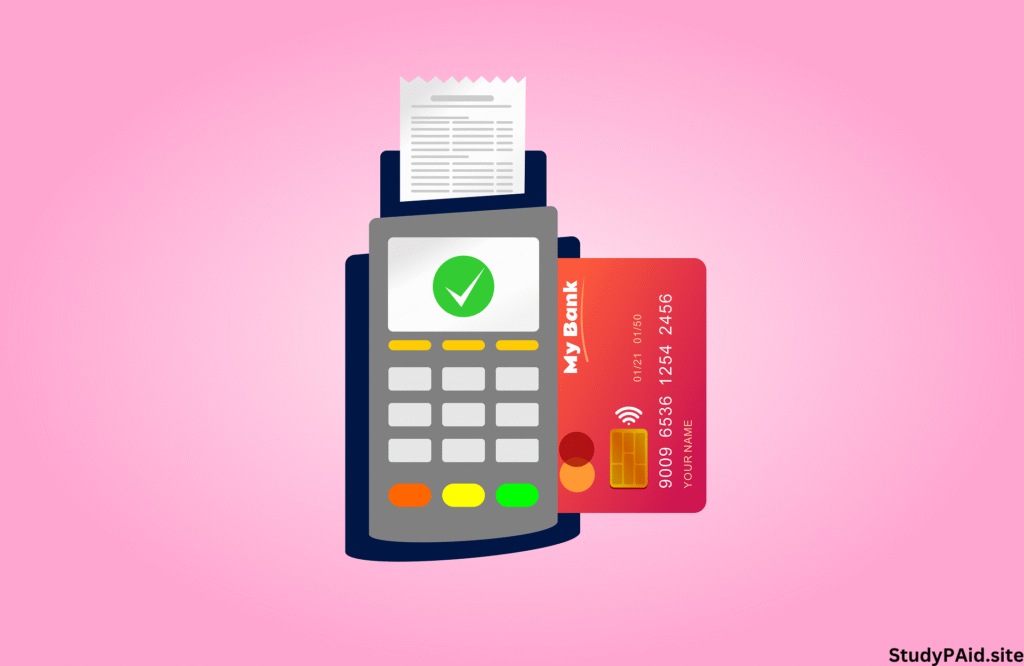Many students and their families are now confronted with the daunting financial challenge of paying for college. The ever-increasing prices of education—including tuition, books, housing, and other living expenses—make student loans a necessity at times. Although federal student loans are more common, credit union student loans are becoming an additional or replacement option for many students. Because of their member-focused attitude, moderate rates, and flexible terms, credit unions may make it simpler to pay for college. This article will walk you through the steps of applying for a student loan from a credit union, as well as the benefits, criteria, and application procedure for these types of loans.
Student Loans from Credit Unions: What Are They?
Loans for higher education may be obtained via credit unions, which are cooperative financial organizations that are not for profit and are managed and owned by their members. Credit unions, in contrast to for-profit banks, prioritize their members’ interests before their own, which means that borrowers often pay lower interest rates and fees.
Some examples of educational costs that these loans could cover include tuition, room and board, books, supplies, and even living expenses while in school. Credit union student loans may cover the costs of higher education at any level, including bachelor’s, master’s, and even vocational schools.
What Makes Credit Unions the Best Choice for Student Loans?
1. Lower Rates of Interest
One major perk of student loans from credit unions is the competitive interest rates. Being non-profit organizations, credit unions are able to provide more affordable rates compared to for-profit banks and lenders. This may significantly reduce borrowing costs throughout the life of the loan.
2. Flexible Payment Plans
Credit unions often provide more flexible repayment plans, such as interest-only payments during school or longer payback periods to lower monthly costs. A few credit unions may go so far as to provide income-driven or postponed repayment plans, much like the government.
3. Individualized Support
With a smaller member base, credit unions are better equipped to cater to each customer’s unique needs. Direct connection with loan officers is common since these professionals know customers’ unique financial situations and can help them choose the best loan solutions.
4. Potential Benefits of Becoming a Member
Since credit unions need membership, borrowers often have the opportunity to access a wider range of financial products and services, generally at discounted rates or with extra perks. A variety of resources, such as savings accounts, credit cards, financial counseling, and more, are available to help college students manage their money.
Why Choose Credit Unions for Your Student Loans?
Membership Obligation
A student loan application cannot be processed until you have joined the credit union. Your family, place of job, level of education, and/or geographic location are some of the many factors that could affect your membership eligibility. Some credit unions have more lenient qualifying standards, so it’s worth shopping around.
Loan Terms and Conditions
Credit union loan terms are flexible and dependent on both the borrower’s and the credit union’s evaluation of their creditworthiness. Common words include:
-
Loan amounts often vary from a few thousand dollars to the whole cost of attendance.
-
Private loans often have lower interest rates, which may be either fixed or variable.
-
The duration of the loan, from five to twenty years, might vary according to the credit union and the kind of loan.
Process for Submitting Requests
Applying for a loan at a credit union is similar to applying at a bank, but it’s usually more easier. It is imperative that you:
-
Please provide official proof of your attendance or acceptance to a qualifying school.
-
Give information about your income and credit history.
-
Having a co-signer is often required if you have a little or nonexistent credit history.
Upon acceptance, the funds are often sent directly to the school to cover tuition and fees. Any remaining funds are then returned to you for your own use.
Various Forms of Credit Union Student Loans
Among the many student loan choices offered by credit unions are:
-
First-time college students may apply for student loans designed specifically for them. In most cases, these loans come with more lenient borrowing limitations, fair interest rates, and longer repayment terms.
-
Loans for Graduate and Professional Students
The intended recipients of these loans are students pursuing advanced degrees. Borrowers with advanced degrees may be eligible for increased borrowing limits and customized repayment programs. -
Parental Loans
To help defray the expense of a child’s education, parents may seek loans from some credit unions. These loans may have different terms and requirements. -
Loan Refinancing
You may be able to combine many student loans into one with more favorable terms and, maybe, a lower interest rate if you apply for a refinancing option with a credit union.
Methods for Applying for Credit Union Student Loans
A credit union student loan often requires you to meet the following criteria:
-
Involvement with the cooperative bank.
-
Acceptance into or enrollment in an eligible postsecondary school.
-
Application support in the form of a co-signer or strong credit.
-
Proof of income or ability to repay (according to the credit union’s criteria).
Researching the specific qualifying criteria of each credit union is essential before to applying, since they vary substantially.
Student Loans from Credit Unions: Pros and Cons
Pros
-
The interest rates offered by credit unions are often cheaper compared to private lenders.
-
Plans that allow for adaptable payback.
-
Help for individual members.
-
The prospect of further monetary benefits and products.
-
Prepayment penalties are often not applicable.
Cons
-
Limitations on membership could make participation difficult.
-
If a student does not have a credit history, a co-signer may be required.
-
You may not get the same amount of money as you would from a large private lender.
-
A small number of credit unions do not provide student loans.
How to Apply for a Student Loan from a Credit Union: A Comprehensive Guide
-
Research Financial Institutions
Find out which credit unions are open to you depending on your profession, school affiliation, or location. -
Sign up to be a credit union member
Please complete the membership application in its entirety and meet all requirements, including opening a savings account, if applicable. -
Put together the manual
Gather the following documents: identification, proof of enrollment, evidence of income, and any awards for financial aid. -
The loan application must be submitted
Submit a complete application for the student loan either in person or online. -
Review the terms of the loan
Verify the fees, interest rates, and payback conditions before signing. -
Deed the borrowing agreement
As soon as you reach an agreement, sign the loan documentation. -
Disbursement of Loans
You will be given the remaining monies for living costs or any other reason when the school receives them.
How to Choose the Finest Student Loan from a Credit Union
-
How to Compare Interest Rates and Other Details
In addition to interest rates, you should look at fees, repayment options, and borrower protections. -
Make Sure You Meet the Requirements to Join
If you’re looking for a credit union, be sure to check their regulations; some are rather strict. -
If you have a less-than-stellar credit history
You should investigate the possibility of requiring a co-signer and, if so, who qualifies. -
Read reviews and ask questions
To get insight into the borrower’s experience, talk to current or former borrowers. -
Search for credit unions that provide financial education, loyalty discounts, or hardship relief
These are additional benefits to consider.
Student Loan Comparisons Between Federal and Credit Union Loans
Federal student loans often provide better borrower protections, including income-driven repayment plans and forgiveness chances, compared to credit union student loans, which may provide lower interest rates and more flexible payback terms. In order to pay off private loans with higher interest rates or supplement government assistance, many students turn to credit union loans.
In Conclusion
Loans from credit unions are a good option for many students who are trying to pay for college. Students’ ability to budget for college might be greatly affected by credit union loans because of their low interest rates, convenient repayment options, and member-focused service. If you are looking for a student loan, don’t rule out credit unions as a possible source; depending on your needs and goals, they may be the best alternative.
